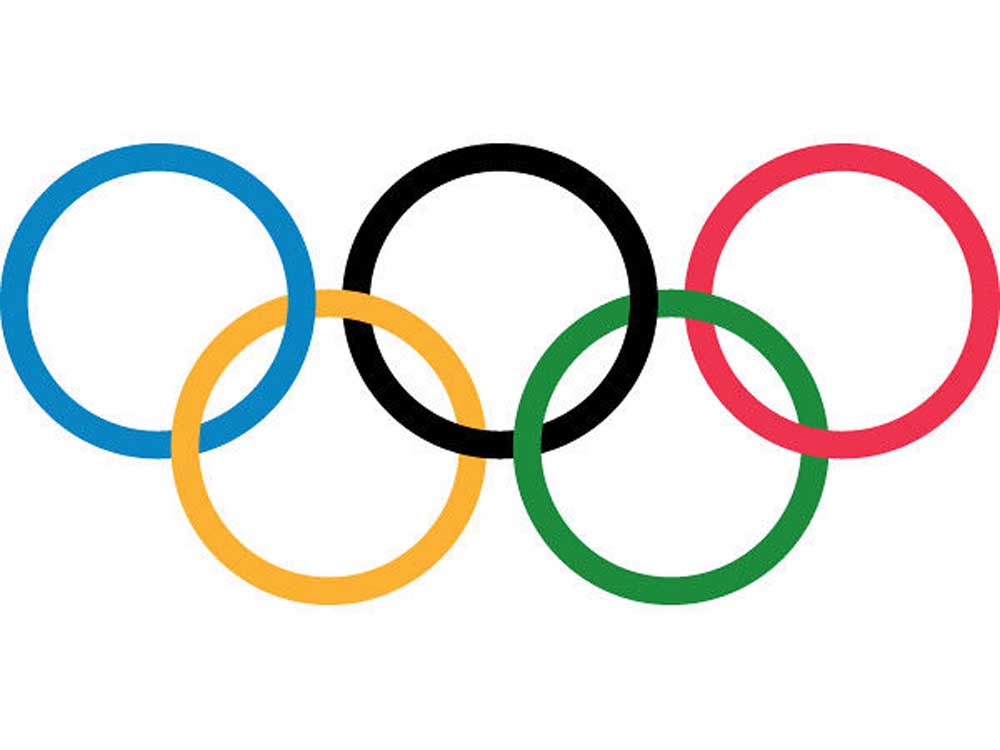Reports: IAAF will not lift the ban on Russian track athletes in time for Rio Olympic Games
Published 11:39 am Friday, June 17, 2016

- Olympic Rings without "rims" (gaps between the rings), as used in the logos of the 2008 and 2016 Olympics. The colour scheme applied here pertains to the 2016 Olympics in Rio de Janeiro. (commons.wikimedia.org)
Their reputations already tarnished, Russia’s track and field athletes will be banished from competing at the Rio Olympics this summer, following a ruling Friday by the International Association of Athletics Federations to uphold a suspension.
Reeling from multiple reports of widespread, systemic, state-sponsored doping, the Russian athletes were initially suspended in November. A five-member task force presented an update to the IAAF, the governing body for track and field, at a Friday afternoon meeting in Vienna.
Rather than opt for a compromise or perhaps allow athletes with no history of doping to compete at the Summer Games, council members barred the entire Russian team.
In a statement Friday, Vitaly Mutko, the Russian Federation’s minister of sport, expressed disappointment in the IAAF’s decision and said the Russians “have nothing to hide and feel we had met the IAAF’s conditions for re-entry.”
“Clean athletes’ dreams are being destroyed because of the reprehensible behavior of other athletes and officials,” said Mutko. “They have sacrificed years of their lives striving to compete at the Olympics and now that sacrifice looks likely to be wasted.”
Since the initial suspension, Russian officials have been proactively pushing for reform. They haven’t admitted to government involvement but have acknowledged doping problems on the nation’s Olympic teams and mounted an aggressive public relations campaign in response.
On Wednesday, Mutko wrote a letter to Lord Sebastian Coe, the IAAF president, as well as IAAF council members, pleading his country’s case and outlining preventive measures that have been taken in recent months.
“Clean athletes who have dedicated years of their lives to training and who never sought to gain unfair advantage through doping should not be punished for the past actions of other individuals,” Mutko wrote. “Additionally, Russia’s athletes must not be singled out as the only ones to be punished for a problem that is widely acknowledged to go far beyond our country’s borders.”
The Russian athletes might still have options. Though the IAAF council is not expected to meet again before the Summer Games, Russia’s Sports Ministry could appeal a decision to the Court of Arbitration for Sport, an international body created to settle disputes of this nature.
It’s also possible that the International Olympic Committee steps in and grants some leniency. IOC President Thomas Bach enjoys a close relationship with Russian President Vladimir Putin and has publicly implied that individual athletes from a banned team could still compete in Rio. The IOC is expected to take up the matter at a meeting next Tuesday in Lausanne, where an IOC spokesman has said the organization will discuss whether individual athletes from banned teams should be granted exemptions.
“We now appeal to the members of the International Olympic Committee to not only consider the impact that our athletes’ exclusion will have on their dreams and the people of Russia,” Mutko said, “but also that the Olympics themselves will be diminished by their absence. The Games are supposed to be a source of unity, and we hope that they remain as a way of bringing people together.”
Russian athletes have faced myriad charges of wrongdoing in recent months, most recently a World Anti-Doping Agency report that was released Wednesday, two days before the IAAF council meeting. The report detailed some of the measures Russian athletes have taken to avoid drug testing in the months that followed the initial IAAF suspension, including one incident in which an “athlete used a container inserted inside her body (presumably containing clean urine).”
“When she tried to use the container it leaked on to the floor and not into the collection vessel,” the report said. “The athlete threw the container into the trash which was retrieved by [a doping official]. The athlete also tried to bribe the [doping official].”
The report found that many athletes failed to properly report their whereabouts for tests, and that doping control officers often faced intimidation. In addition, some athletes would report their whereabouts as military cities, where “athletes know that special permission is needed to gain access,” the report stated, noting that “athletes provide this location even if they aren’t there, to deter test planning.”
Author Information:
Rick Maese is a sports features writer for The Washington Post.
(c) 2016, The Washington Post · Rick Maese · WORLD, SPORTS, OLYMPICS · Jun 17, 2016 – 11:30 AM






